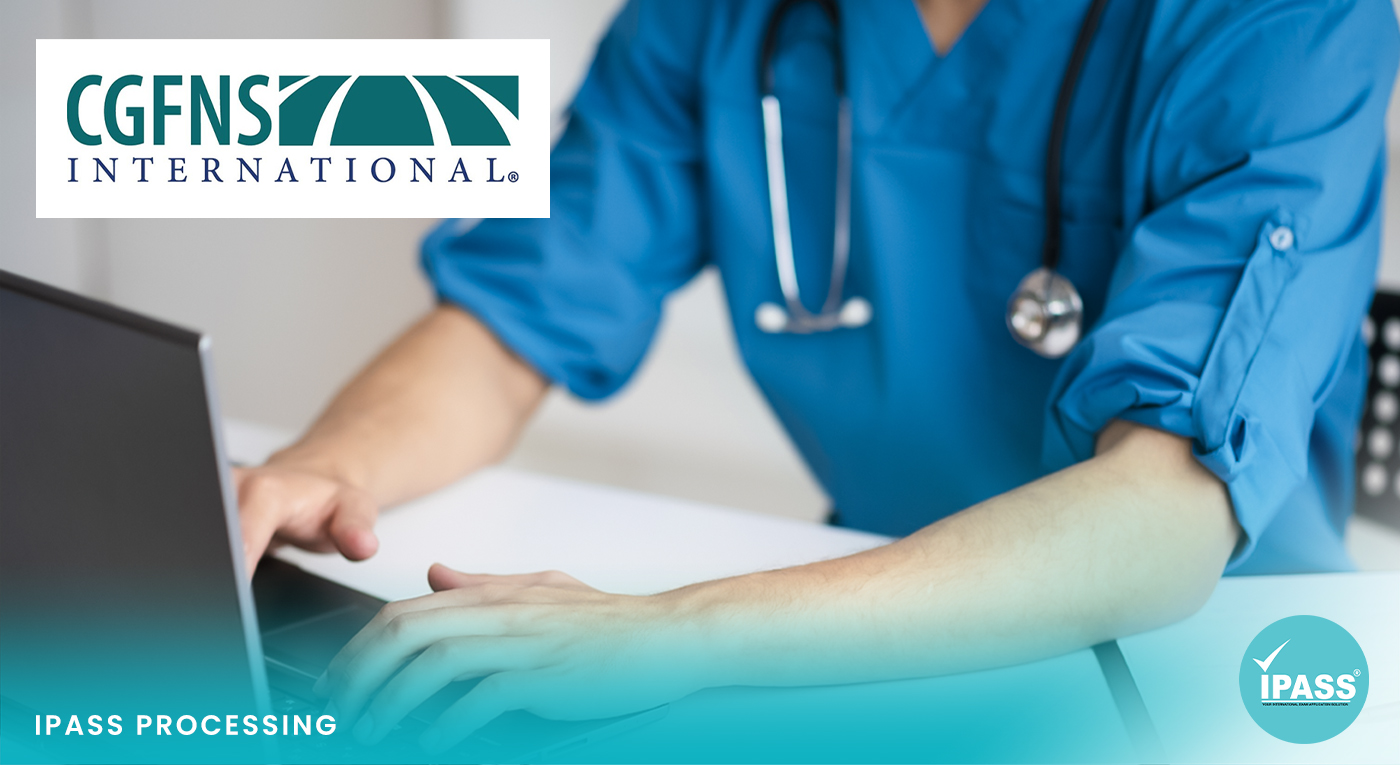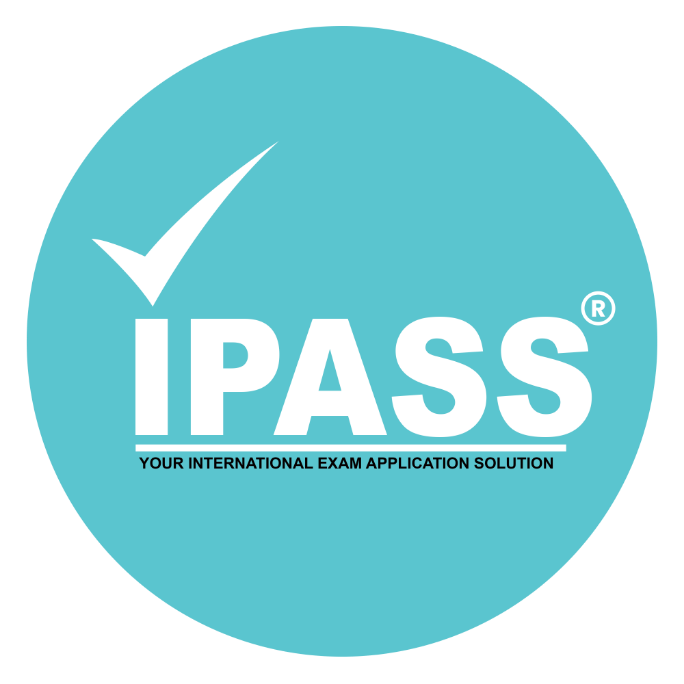Your cart is currently empty!

NCLEX & CGFNS Application: Discrepancies & How to Avoid Them
Pursuing your nursing career abroad, commonly in the US or the Middle East, is probably your goal and that of many other nurses. Really, who wouldn’t? When the salary is better, the benefits are far more favorable, both at present and for your future. But of course, you must take the NCLEX to work in the US. However, the NCLEX application process is equally important as the exam itself.
The application process for your NCLEX varies greatly depending on which US state you wish to practice your profession. Some states require various information you must submit, like the CGFNS application, while others do not. Additionally, it is essential to remember that the information you submit is complete and concise.
Ideally, you would want to avoid CGFNS application problems due to deficiencies you should have seen or noticed. Discrepancies in NCLEX and CGFNS applications usually happen when you, as an applicant, forget or overlook the information you should provide. As a result, this impedes your application for the exam and delays the processing time.
What is CGFNS?
CGFNS, or Commission on Graduates of Foreign Nursing Schools, is a prerequisite exam for NCLEX application. However, note that the CGFNS Qualifying Exam is only necessary for a handful of states and not all of them. Moreover, It’s a non-profit organization aiding foreign-educated nurses seeking US practice. Providing various services, CGFNS supports the following:
• Credential Evaluation: CGFNS evaluates the credentials of foreign-educated nurses to determine if they are equivalent to those of U.S.-educated nurses.
• Certification: CGFNS offers a certification program for foreign-educated nurses who want to take the NCLEX-RN exam. Moreover, the NCLEX-RN exam is a requirement for licensing to practice as a registered nurse in the United States.
• Licensing Assistance: CGFNS assists foreign-educated nurses applying for licensure in the United States.
NCLEX and CGFNS Application Problems
Anticipating and addressing potential problems within your CGFNS application is crucial. Often, these issues arise from overlooked or omitted information. As an applicant, failing to provide complete details can hinder your exam application and lead to delays in processing. Thus, you may check this article for more information regarding CGFNS’s major components.
However, you shouldn’t worry because applicants get notified through email if deficiencies are present in their applications. Listed below are some common deficiencies or problems encountered during NCLEX and CGFNS applications:
Incomplete NCLEX and CGFNS Application Information
Providing insufficient information is the foremost issue applicants make during their CGFNS and NCLEX application. Usually, applicants fail to make amendments due to a simple oversight, resulting in process delays. On the other hand, ensuring that your data is correct and complete allows for a straightforward and smooth-sailing application process.
Therefore, continually review and check your transcripts or forms before submitting them. Moreover, it helps avoid delays with the NCSBN, CGFNS, or processing agencies like IPASS Processing. Here are some of the commonly overlooked information on the NCLEX and CGFNS Application:
• Incomplete Name
Your name is crucial for the State Board of Nursing to identify you. Even a minor spelling mistake can slow down your NCLEX or CGFNS application. For example, failing to include your middle name or using a different spelling of your name than the one on your passport. So, double-check to ensure your name is accurate and error-free.
• Incomplete School Information
If necessary, review the name and details of your accredited nursing school before submitting your application. For example, failing to include the name of your nursing school or the exact dates you attended. So, remember to check the exactness of your entrance and graduation dates.
Having Incorrect Details on the Applicant’s CGFNS Account
Every US state’s Board of Nursing has different requirements for foreign medical professionals. Some states use CGFNS accounts as part of their prerequisite in the application process. As emphasized above, the correctness of the applicant’s data should always be considered and resolved to avoid unnecessary delays.
The following are more discrepancies in an NCLEX and CGFNS application that you must be wary of:
• Incorrect Names (First names, Middle names, and Last names)
Without a doubt, the essential information you have is your name. That is because it is how the State Board of Nursing would be able to identify you. A misspelled name or a typographical error can delay the application process. So make sure your name is correctly spelled, and look out for any typos to avoid inaccuracies in your name.
• Incorrect Birthday Format (Month, Day, and Year)
Like your name, your date of birth is crucial information, so ensure it is correct. Also, check and follow the correct format of the date to ensure consistency with your supplementary documents and credentials. In addition, if you’ve already submitted your NCLEX or CGFNS application and see an error, you may send an email regarding this.
• Incorrect License Details (Licensing Authorities, License Numbers, and Country)
Your license should also be correct, as it is your eligibility and proof that you are a registered nurse. See that the licensing authorities, your license number, and the country in your credentialing CGFNS account are accurate to avoid inconsistencies.
• Incorrect School Details (School Name and Entrance and Graduation Dates)
Before submitting your NCLEX or CGFNS application, review the name and details of your accredited nursing school if needed. Remember to check the exactness of your entrance and graduation dates.
Note: Each US State Board of Nursing may establish distinct criteria for foreign medical professionals. Certain states incorporate CGFNS accounts into their application prerequisites. So, maintaining accurate applicant data and promptly resolving discrepancies is vital to ensure timely responses. Thus, make sure that you check the Board of Nursing of the state where you would want to practice your nursing license.
Helpful Tips to Prevent NCLEX and CGFNS Application Problems and Delays
Navigating the NCLEX and CGFNS application process might pose challenges. However, following the tips below can significantly reduce delays and errors in your application.
Start Early and Plan Ahead
The application process can be time-consuming and involves gathering significant documentation. So, starting your application earlier will give you ample time to:
a. Review the NCLEX and CGFNS application guidelines and requirements to understand the process and what is expected of you.
b. Gather and organize all the required documents, such as transcripts, diplomas, licensure certificates, and work experience verification letters.
c. Address any potential issues with your documents, such as missing or incomplete records or inconsistent names or dates.
d. Request certified copies of your documents if necessary.
e. Schedule translations if any of your documents are not in English.
f. Complete the NCLEX and CGFNS application form thoughtfully and accurately.
By starting early and planning, you can avoid last-minute stress and ensure your application is complete and submitted on time.
Read and Follow Instructions Carefully
NCSBN and CGFNS provide detailed instructions and guidelines for each step of the application process. So, it is crucial to pay close attention to these instructions and ensure that you are following them precisely. It includes:
a. Completing all required sections of the application form.
b. Providing accurate and complete information in all fields.
c. Attaching all the necessary documents in the correct format and order.
d. Adhering to the specified deadlines for submitting documents and completing the application.
Following the instructions carefully will help avoid delays, deficiencies, or application denial.
Gather and Verify Documents Thoroughly
The NCLEX and CGFNS application requires various supporting documents to verify your education, licensure, and work experience. Thus, it is essential to:
a. Collect all the required documents as listed in the CGFNS guidelines.
b. Review each document carefully to ensure accuracy and completeness.
c. Verify the authenticity of your papers by obtaining certified copies from the issuing institutions or organizations.
d. Address any discrepancies or inconsistencies in your documents promptly.
e. Organize your documents systematically for easy reference and submission.
By thoroughly gathering and verifying your documents, you can prevent deficiencies in your documents that may cause delays.
Pay Attention to Deadlines and Fees
NCSBN and CGFNS have strict deadlines for submitting applications and paying fees. So, it is your responsibility to:
a. Be aware of the deadlines for each step of the CGFNS application process.
b. Submit your application and all required documents before the deadlines.
c. Pay the applicable fees on time to avoid penalties or delays.
d. Monitor your application status regularly to ensure you meet any additional deadlines or requirements.
Missing deadlines or failing to pay fees can significantly impact your application process and potentially result in denial.
Seek Guidance and Clarification When Needed
If you encounter any questions, concerns, or difficulties during your NCLEX and CGFNS application process, don’t hesitate to seek assistance. Moreover, you can also contact processing agencies like IPASS Processing to process your application. They have dedicated staff who can provide the following:
a. Clarification of application requirements and guidelines
b. Guidance on completing the application form and gathering documents
c. Troubleshooting assistance for technical issues
d. Answers to specific questions about your application status
Seeking guidance and clarification when needed can help you avoid mistakes, resolve issues promptly, and ensure your application is handled correctly.
How Can IPASS Help You Process Your NCLEX and CGFNS Application
IPASS Processing can help nurses gather and verify documents, complete their application forms, and communicate with the designated officials on their behalf. Furthermore, here are some of the benefits of using IPASS Processing:
a. Convenience: IPASS Processing can handle all the paperwork associated with the NCLEX and CGFNS application process. Thus, they’re saving nurses significant time and effort.
b. Expertise: IPASS has a team of experts familiar with the NCLEX and CGFNS applications and can help nurses avoid mistakes.
c. Accuracy: IPASS Processing is committed to accuracy and will ensure that nurses’ applications are submitted correctly.
d. Peace of mind: IPASS Processing can help to prevent NCLEX and CGFNS application problems. Hence, nurses are allowed to focus on their NCLEX review.
If you are a foreign-educated nurse considering applying for licensure in the United States, consider using IPASS Processing. We can help you to streamline the application process and increase your chances of success.
The Bottom Line
Remember, your CGFNS application is your gateway to pursuing a nursing career in the US. However, before you can sit for the exam, your application must be approved by the state board of nursing. To ensure success, you should prioritize accuracy, thoroughness, and adherence to guidelines. The key is diligence, whether you’re just starting or encountering obstacles. Furthermore, staying proactive and vigilant throughout the application process increases your chances of a smooth and timely approval.
Ready to navigate the NCLEX and CGFNS application process with ease? IPASS Processing offers a streamlined solution to ensure your application meets the mark. With our expertise and dedication to accuracy, we’ll guide you, increasing your chances of a seamless approval process. Don’t let complexities hinder your journey to becoming a registered nurse in the United States. Trust IPASS Processing to simplify the process for you. Contact us today and step confidently toward your nursing career abroad!
Recommended Reads
- May 2025 PNLE Results: Top Schools & Topnotchers
- Ace the May 2025 PNLE: Final Week Preparation Tips
- Nursing Job Opportunities in the Philippines for USRNs
- AHPRA Registration 2025: Updated Pathways for IQRNs
- The Benefits of Pursuing a Midwifery Career in the UK
Recommended Topics
- ASCPi (1)
- Australia (8)
- Canada (5)
- Exam Tips (28)
- General (120)
- IPASS Events (10)
- IPASS News (129)
- Middle East Nursing (17)
- NCLEX (63)
- New Zealand (3)
- NMBI Ireland (1)
- Online Review (13)
- PNLE Online Review (3)
- Tourist Visa (1)
- UKNMC (1)
- US Nursing (12)
- UWorld (1)
- VisaScreen (3)
One response to “NCLEX & CGFNS Application: Discrepancies & How to Avoid Them”
Hello Ipass! Thank you for this tool.I am a mother of a foreign educated nurse who passed his US NCLEX RN exam. In his application he failed to put his ITIN number however in his Pearson Vue account he was able to put. Will this be a problem for him? If so how do we solve it. Please advise. Thank you so much! Long Live Ipass!








Leave a Reply